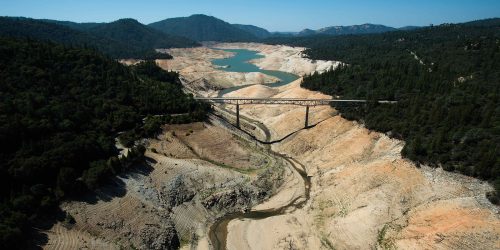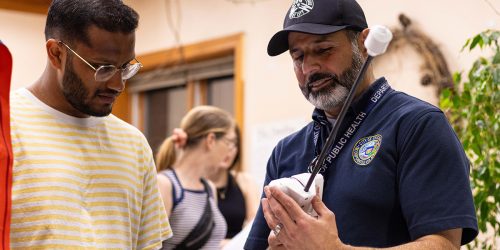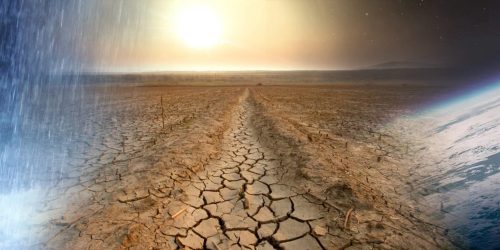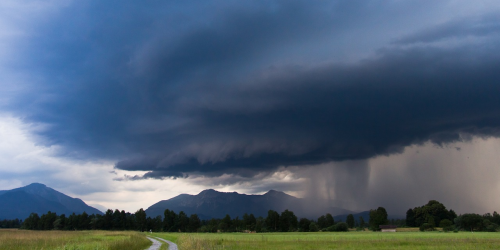Today, the Department of Commerce and NOAA announced $4.55 million in funding for two virtual centers of excellence to support community heat monitoring and resilience as part of President Biden’s Investing in America agenda. These funds from the Inflation Reduction Act, the largest climate investment in history, will allow the federal interagency National Integrated Heat Health Information System (NIHHIS) to enhance community science observations and data collection on extreme heat, and provide assistance to communities planning for and evaluating equitable heat resilience projects. The centers will work alongside community members and community-based organizations to advance place-based heat information and decision-making, so they can reduce heat-related illness and death, harmful infrastructure impacts and other heat risks.
“The impacts of extreme heat caused by climate change are an increasing threat to our health, ecosystems and economy,” said U.S. Secretary of Commerce Gina Raimondo. “Thanks to President Biden’s ambitious climate agenda, this investment will support new NIHHIS Centers of Excellence to help protect historically excluded communities from the dangers of extreme heat, boost climate resilience and increase awareness on best practices to tackle the climate crisis.”
NOAA led grant competitions to establish two NIHHIS Centers of Excellence, which will receive a combined total of $4.55 million in funds over three years. One center, which will be based out of Durham, North Carolina, will assist community serving organizations in conducting local climate and health studies. The other, which will be based out of Los Angeles, will support heat risk reduction decision-making through applied climate and health research and analysis.
“NOAA has a long history of working with communities to map urban heat islands and develop strategic heat resilience plans,” said NOAA Administrator Rick Spinrad, Ph.D. “This is an exciting opportunity to expand and enhance our efforts and develop extensive networks for sharing knowledge across multiple locations.”
Below are additional details about the NIHHIS Centers of Excellence:
- North Carolina
- The Center for Collaborative Heat Monitoring will receive $2.3 million in funding to support community science observations and data collection on extreme heat so communities can observe, monitor and evaluate factors influencing heat risk at a local scale. The center will be based at the Museum of Life and Science in Durham, N.C. and will include three additional geographically dispersed sites, each serving a different region of the U.S. This will enable work to engage regional communities and connect with existing networks for public education and engagement. In addition to the Museum of Life and Science, these hubs include the Arizona Science Center, the Oregon Museum of Science and Industry and the Museum of Science in Boston. CAPA Strategies, Utah State University, and AQUEHS Corp. will also support the technical capacity of the center.
- California
- The Center for Heat Resilient Communities will receive $2.25 million in funding to support communities in determining the best strategies for local heat mitigation and management, leveraging federal investments to enhance heat resilience, and using decision-support tools to develop data-driven and equity-centered heat strategies. This center will develop and implement a Heat Resilient Communities Framework that brings together diverse expertise and knowledge-sharing hubs to identify and evaluate policies, protocols and lessons for heat resilience. With support from the University of California, Los Angeles Luskin Center for Innovation, Arizona State University and the University of Arizona, this center will directly fund communities and tribal entities across the U.S. It will also develop knowledge and lessons learned that can be applied in the U.S. and internationally.
These efforts advance the Biden-Harris Administration’s Justice40 initiative, which set a goal that 40 percent of overall benefits from certain federal climate and clean energy investments flow to disadvantaged communities that are marginalized by underinvestment and overburdened by pollution. It supports a whole-of-government effort of federal agency engagement with states and local communities to ensure that benefits reach disadvantaged communities. The centers will work with historically excluded communities to broaden the impact and benefits of participatory science, heat data and information, and decision-making tools to communities not yet served by these resources.
The NIHHIS Centers of Excellence will build on eight years of NIHHIS efforts to map urban heat islands in over 80 U.S. and international communities. This information supports heat decision making by helping cities understand where heat is distributed and who is most at risk. Past heat mapping campaigns have informed city sustainability plans, public health practices and urban forestry plans. The new centers will interact with the communities of practice established as a result of these mapping efforts, so they can share resources, ideas and best practices.
Visit NOAA’s Bipartisan Infrastructure Law and Inflation Reduction Act websites to learn about current and future funding opportunities.
Media contact
Monica Allen, monica.allen@noaa.gov, (202) 379-6693
###





